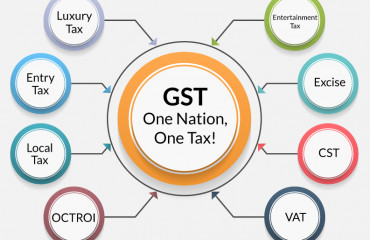
The complexity of decisions taken by the GST Council is enough to explain why we need a reset of this regime. Let’s get it back in harmony with its promise of ‘one country, one tax’
The Goods and Services Tax (GST) Council’s latest decisions highlight just how complex this tax regime has become. Multi-utility vehicles (MUVs) with a minimum length of 4,000mm, or engine size of at least 1,500cc, or ground clearance exceeding 170mm will now be treated like sport-utility vehicles (SUVs), thus attracting a cess of 22% instead of 20%.
Summary
The complexity of decisions taken by the GST Council is enough to explain why we need a reset of this regime. Let's get it back in harmony with its promise of 'one country, one tax'
The Goods and Services Tax (GST) Council's latest decisions highlight just how complex this tax regime has become. Multi-utility vehicles (MUVs) with a minimum length of 4,000mm, or engine size of at least 1,500cc, or ground clearance exceeding 170mm will now be treated like sport-utility vehicles (SUVs), thus attracting a cess of 22% instead of 20%. MUVs that measure less will still attract the lower levy (applied as an extra after GST). Also, how high a vehicle's frame rests will now be measured unladen, without passengers i.e., as opposed to laden. Whether this switch applies only in this instance or broadly for all industry matters is unclear, though. In addition, sedans have been spared this burden, no matter how they compare on these counts, so big-wheelers have been judged particularly tax-worthy. It's a sign of just how far the idea of one simple tax across the economy, GST, has been stretched that top policy time is devoted to such tiny details.
With luxury items placed in the top slab of 28% right from the start in 2017 so that the rich bear more tax, the GST Council's discretion on slotting goods and services into slabs has made space for vexed debates. This is at a feverish pitch in online gaming, a boom sector with its own tale of complexity. Here, pleas of leniency had arisen from business players asking for games of skill to be treated apart from those of luck, echoing a debate over their legal status. The Council chose to club online gaming with other bets and gambles in the top slab, with 28% GST to be levied on the customer's buy-in ticket price—as with any consumption tax—even if that's the whole sum wagered. This bit about GST applying to the full value of an online bet has been a blow to internet business models set up assuming much less tax. It's unfortunate that so little clarity prevailed within this field. While this is another example of confusion over a tax that was expected to simplify dues, the Council's call was sound within the framework we have. Like with a hotel stay, GST applies to the transaction price, not net value, and it's unclear how online gaming could expect it to apply otherwise. On the tax bracket as well, while these businesses may need to operate on wafer-thin margins to attract gamers, India's GST slab multiplicity was driven by a need to keep indirect taxation progressive, sparing consumers of modest means to the extent possible. Although gaming may be addictive and thus display somewhat inelastic demand, it cannot be claimed as a necessity, nor can its advocates make a moral case for an easy levy. Maybe a moderate rate for gaming could have been considered. But then, that would be easier to argue for had we opted for a flat GST rate for everything, with a list of exceptions short enough to explain itself at a glance. So long as a luxury slab exists in India, gaming is unlikely to escape its clutches, luck based or not.
This is a tax system whose reformist power was meant to lie partly in its simplicity. Today, the fact that just a couple of market segments can arouse heated discussion shows why it needs to be freed of concept distortions and reset in line with what it was famously called by the Prime Minister six years ago: "a good and simple tax." While a single rate for all that's bought may be too utopian, we should overhaul the system to simplify it—and expand its coverage. Even if revenue neutrality proves a challenge, it will do our economy a good turn.
